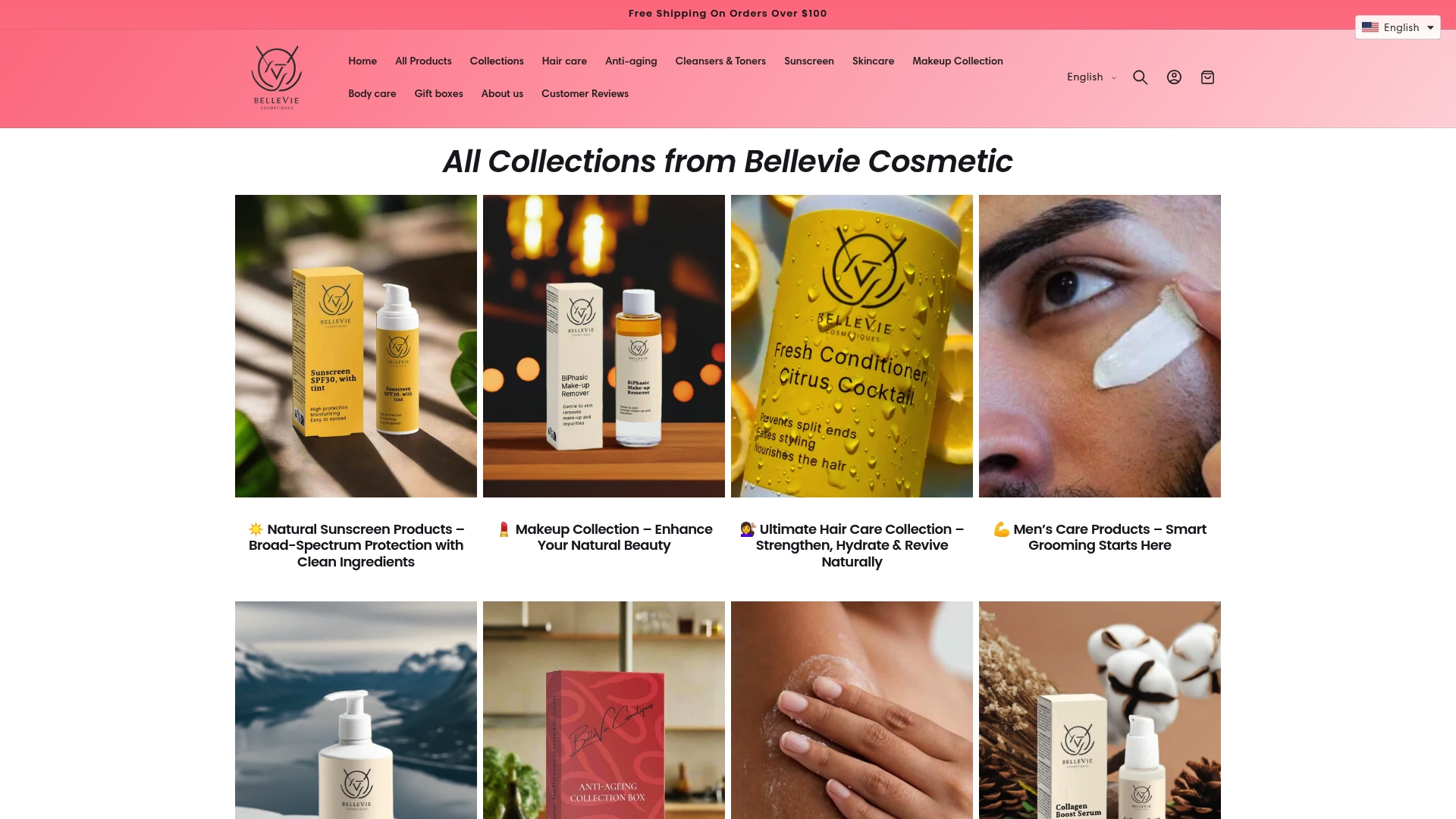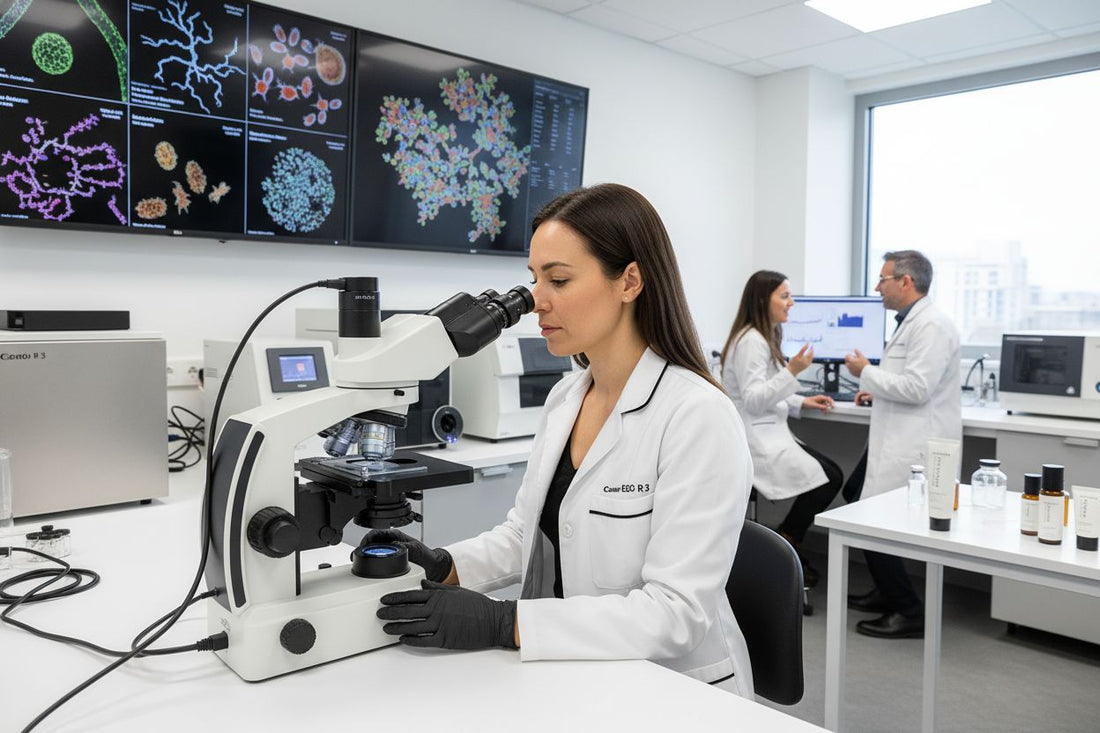Did you know that more than 1 trillion microorganisms live on your skin at any moment? These tiny inhabitants form an invisible shield that plays a vital role in keeping your skin balanced and healthy. As science uncovers how these microbial communities protect against irritation and help your skin stay resilient, products designed for microbiome care are capturing attention. Discover how understanding and nurturing your skin’s unique ecosystem can unlock new possibilities for lasting skin health.
Key Takeaways
| Point | Details |
|---|---|
| Microbiome Skincare Concept | Focuses on nurturing the skin’s microbial ecosystem to enhance skin health beyond traditional methods. |
| Key Mechanisms | Involves prebiotics, probiotics, and postbiotics to maintain skin balance, reduce inflammation, and improve hydration. |
| Individual Skin Responses | Efficacy of microbiome skincare varies by skin type; tailored solutions are essential for optimal benefits. |
| Caution in Use | Introduce products gradually and consult professionals to avoid disruptions in the skin’s natural balance. |
Table of Contents
- Defining Microbiome Skincare And Its Origins
- How Microbiome Skincare Works For Skin Health
- Key Ingredients And Types Of Microbiome Products
- Benefits And Limitations For Different Skin Types
- Risks, Misconceptions, And Safe Usage
Defining Microbiome Skincare and Its Origins
Microbiome skincare represents a groundbreaking approach to understanding skin health that goes far beyond traditional cleansing and moisturizing. Microbiome skincare focuses on nurturing the invisible ecosystem of microorganisms living on our skin—a complex network of bacteria, fungi, and viruses that work together to maintain our skin’s protective barrier.
According to the Human Microbiome Project, this intricate microbial community plays a crucial role in skin health, protecting against environmental stressors, regulating inflammation, and maintaining optimal skin balance. Research on probiotics in skincare suggests that supporting this delicate ecosystem can help address various skin concerns, from acne to sensitivity.
The origins of microbiome skincare trace back to scientific breakthroughs in understanding how microorganisms interact with human biology. Key developments include:
- The Human Microbiome Project (2007-2016), which mapped microbial populations across different body sites
- Advanced genomic sequencing techniques that revealed the complexity of skin microorganisms
- Growing recognition that disrupting the skin’s microbiome can lead to conditions like eczema, psoriasis, and chronic inflammation
Today, microbiome skincare represents a holistic approach that aims to restore, balance, and support the skin’s natural protective mechanisms, moving beyond traditional treatments to embrace the living ecosystem that keeps our skin healthy and resilient.

How Microbiome Skincare Works for Skin Health
Microbiome skincare operates on a revolutionary principle of supporting rather than disrupting the delicate ecosystem living on our skin. Microbiome balance is the key to maintaining healthy, resilient skin, focusing on nurturing the complex community of microorganisms that protect and regulate our skin’s overall health.
According to research, microbiome skincare works through three primary approaches: prebiotics, probiotics, and postbiotics. Connecting skincare to overall wellness reveals how these components interact to support skin health. Prebiotics serve as nutritional support for beneficial microbes, creating an environment where healthy bacteria can thrive. Probiotics introduce beneficial live organisms, while postbiotics provide microbial byproducts that strengthen skin barrier function.
Key mechanisms of microbiome skincare include:
- Maintaining optimal pH levels to support beneficial microorganisms
- Reducing inflammation and potential skin irritation
- Improving skin hydration and barrier resilience
- Protecting against environmental stressors
By supporting the skin’s natural microbial balance, this innovative approach goes beyond traditional skincare, offering a holistic method that treats the skin as a living, dynamic ecosystem.
The goal is not to eliminate all bacteria, but to create an environment where protective microorganisms can flourish and support overall skin health.
Key Ingredients and Types of Microbiome Products
Microbiome skincare represents a sophisticated approach to skin health, featuring three primary ingredient categories that work synergistically to support the skin’s delicate microbial ecosystem. Microbiome products are carefully formulated to nurture and protect the complex network of microorganisms that keep our skin balanced and healthy.
According to research from The Ordinary, the key ingredient types include prebiotics, probiotics, and postbiotics. Exploring multi-use skincare products reveals how these ingredients work together to optimize skin health. Prebiotics like inulin serve as nutritional support for beneficial bacteria, creating an environment where good microbes can flourish.
Key microbiome product ingredients include:
Here’s a summary of key ingredient types in microbiome skincare:
| Ingredient Type | Main Function | Example Ingredients |
|---|---|---|
| Prebiotics | Nourish good microbes | Inulin, Oligosaccharides |
| Probiotics | Add beneficial bacteria | Lactobacillus, Bifida Ferment Lysate |
| Postbiotics | Support barrier function | Lactococcus Ferment Lysate, Enzymes |
| pH-Balanced Agents | Preserve microbial balance | Mild acids, Buffering agents |
- Prebiotics: Nutritional compounds like inulin that feed beneficial microbes
- Probiotics: Live beneficial microorganisms that help balance skin flora
- Postbiotics: Fermentation byproducts such as Lactococcus Ferment Lysate that support skin health
- Gentle, pH-balanced formulations that preserve skin’s natural protective barrier
These innovative products go beyond traditional skincare, offering a holistic approach that treats the skin as a living ecosystem. By supporting the microbiome’s delicate balance, these products help reduce inflammation, improve hydration, and strengthen the skin’s natural defenses, making them a game-changing solution for those seeking comprehensive skin health.

Benefits and Limitations for Different Skin Types
Microbiome skincare offers a nuanced approach to addressing various skin concerns, recognizing that each skin type responds differently to microbial support. A healthy microbiome acts as a protective shield, helping skin maintain optimal balance, hydration, and resilience across diverse skin types and conditions.
According to research, the benefits vary significantly depending on individual skin characteristics. The importance of facial serums highlights how targeted microbiome support can be particularly transformative for specific skin challenges. For sensitive and reactive skin types, microbiome products can be especially beneficial in reducing inflammation and strengthening the skin’s natural defense mechanisms.
Key considerations for different skin types include:
- Sensitive Skin: Helps calm irritation and reduce reactive responses
- Oily/Acne-Prone Skin: Balances bacterial populations to minimize breakouts
- Dry Skin: Supports hydration and barrier function
- Aging Skin: Enhances skin resilience and slows visible signs of aging
However, microbiome skincare isn’t a one-size-fits-all solution. Individual skin responses can vary, and potential limitations include initial adjustment periods, potential sensitivity to new ingredients, and the need for consistent, long-term use to see significant results. Consulting with a skincare professional can help determine the most appropriate approach for your unique skin needs.
Risks, Misconceptions, and Safe Usage
Microbiome skincare demands a nuanced understanding, as the science behind these products continues to evolve. While promising, this approach is not without potential risks and common misconceptions that consumers should carefully navigate to ensure optimal skin health.
According to research from The Ordinary, the effectiveness of microbiome products is still being studied, with significant variations in how different ingredients impact skin biology. The importance of moisturizer underscores the critical balance between supporting and potentially disrupting skin’s natural ecosystem. The key is understanding that not all microbial products are created equal, and indiscriminate use can potentially harm rather than help your skin’s delicate balance.
Common misconceptions and risks include:
- Oversimplification: Believing all bacterial products are automatically beneficial
- Over-manipulation: Excessive use of prebiotics or probiotics can disrupt natural skin balance
- Ingredient Quality: Not all microbial strains or byproducts are equally effective
- Individual Variability: Skin responses can differ significantly between individuals
Safe usage requires a thoughtful approach: introduce new microbiome products gradually, patch test for potential reactions, and consult with a skincare professional. Remember that your skin’s microbiome is a complex, dynamic system that responds best to gentle, consistent care rather than radical interventions.
Ready to Restore Your Skin’s Natural Balance?
Are you struggling to calm redness, soothe breakouts, or achieve lasting hydration? The article on microbiome skincare shows that real results come from products designed to nourish your skin’s protective ecosystem. With Belle Vie’s collection of natural skincare, you can finally address the root causes of irritation, imbalance, and environmental stress—all with pure, clinically backed ingredients.

Let your skin experience the difference of microbiome-friendly routines crafted for every need. Explore our range of facial cleansers and toners, rich in prebiotics and botanical extracts. Shop our full lineup at Belle Vie Collections to unlock cleaner, stronger, and healthier skin. Now is the perfect time to find your ideal solution. Discover what nature and science can do for you today.
Frequently Asked Questions
What is microbiome skincare?
Microbiome skincare focuses on nurturing the ecosystem of microorganisms living on our skin. It aims to support skin health by maintaining the balance of bacteria, fungi, and viruses that protect the skin’s barrier.
How does microbiome skincare benefit the skin?
Microbiome skincare benefits the skin by reducing inflammation, improving hydration, and boosting barrier resilience. It supports optimal pH levels, which helps maintain a healthy microbial balance and protects against environmental stressors.
What are the key ingredients in microbiome skincare products?
Key ingredients in microbiome skincare include prebiotics (like inulin), probiotics (such as Lactobacillus), and postbiotics (like Lactococcus Ferment Lysate). These ingredients work together to nourish good microbes, add beneficial bacteria, and support skin health through microbial byproducts.
Can microbiome skincare be used on all skin types?
Yes, microbiome skincare can be beneficial for all skin types. However, individual responses may vary. For sensitive skin, it can help reduce irritation, while it can balance bacteria for oily skin and enhance hydration for dry skin. Consult a skincare professional for personalized recommendations.
